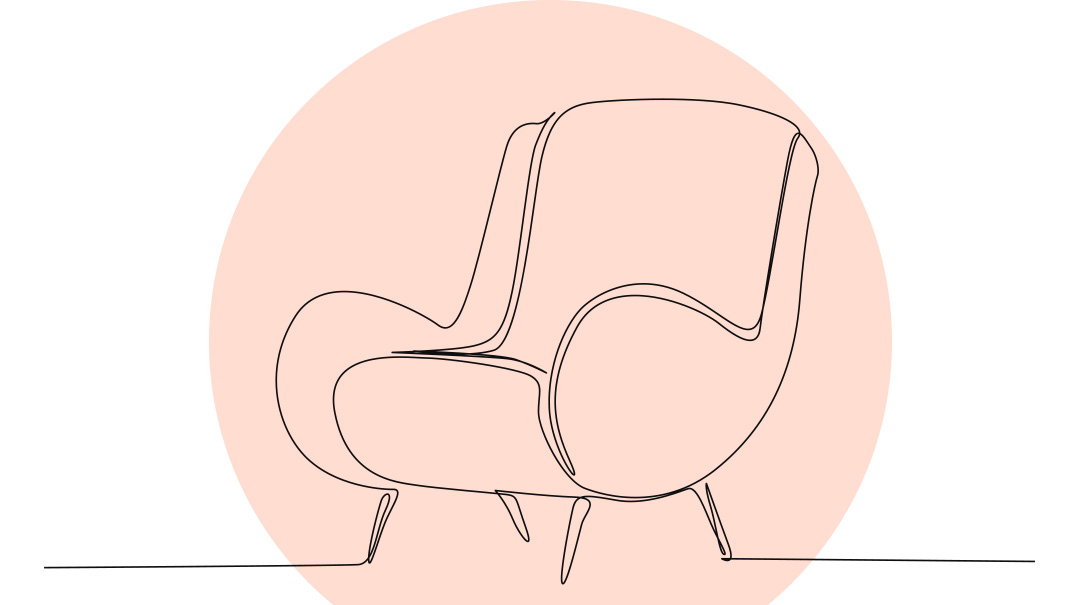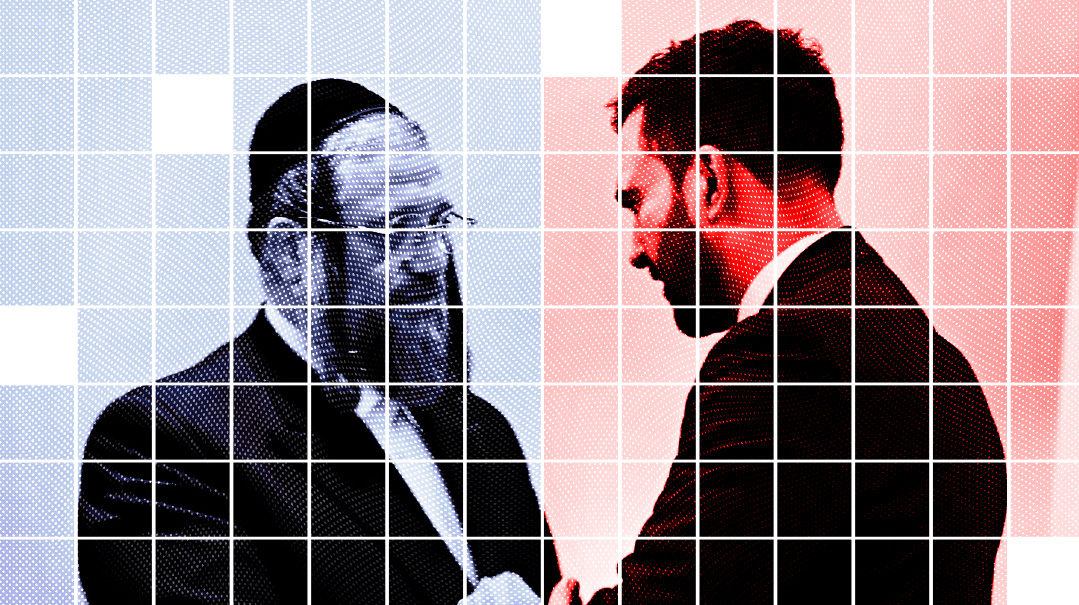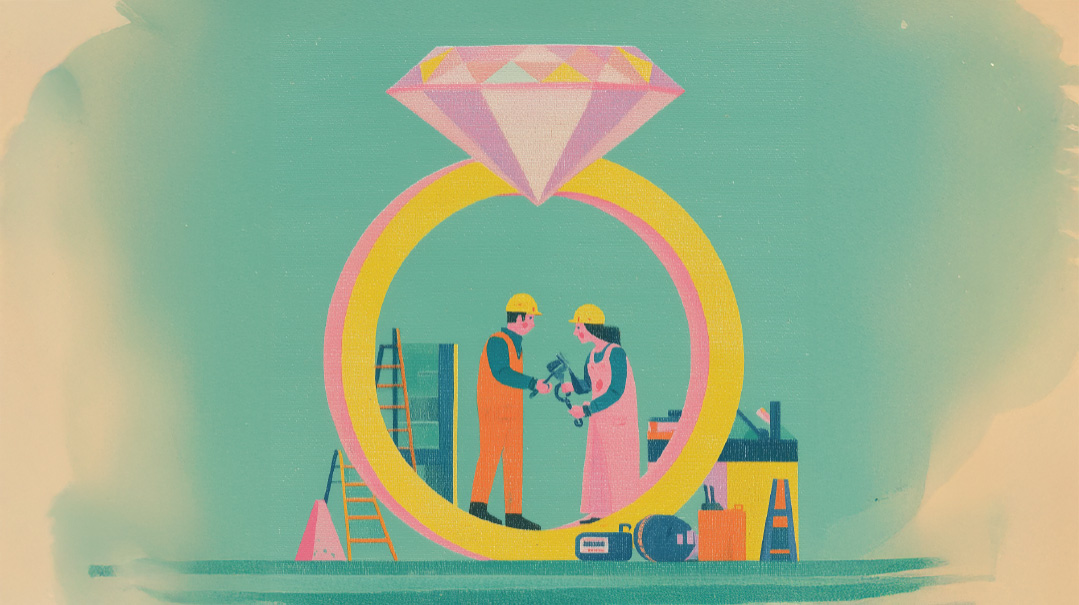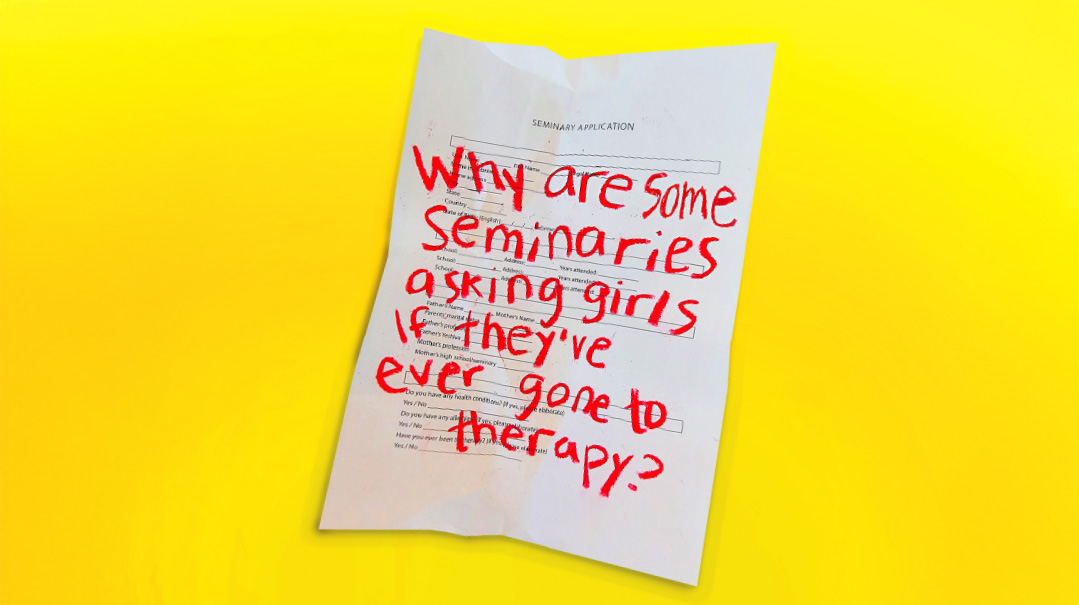The Elephant in the Therapy Room: The Conversation Continues

Does a therapist’s age matter? Should frum young adults be venturing into the field of mental health before they have life experience? Readers weigh in on Sarah Rivkah Kohn’s column.

Experience Isn’t Everything
I just graduated three years ago from social work school. I’m in my forties and had a couple of classmates my age, but the rest were in their twenties.
The downside to men and women my age going to school is that they sometimes believe their life experience is everything. Our excellent professors helped me chuck that idea out pretty quickly. I will add though that I don’t think life experience is irrelevant.
I have my own practice, and I’m at a full-capacity load. If I could clone myself, I would. I don’t believe I’m doing better work than my colleagues and classmates. I do believe that I’m less afraid to take on a lot of situations because as a mother and grandmother and former teacher, I’ve seen a lot.
I’d love to encourage more men and women in their thirties, forties, fifties, and sixties to go back to school. Go to an excellent program, don’t cut corners on your internship, and go in full head on. The klal needs more of you!
Anonymous
Should We Hold Them Back?
I’m a single mother who has been through therapy. I never kept it a secret from my children, and in some ways, it must be what inspired my seminary daughter to insist that social work is the field of choice for herself.
And yet, I know therapy well, and I can’t begin to imagine who would trust someone my daughter’s age as their therapist. She’s a genius. She’s good and wholesome and growing. I love her. And yet, would I send my child to her?
Training is about 50 percent of what makes a therapist a good fit. Fifty percent is who the therapist is. Whereas speech or physical therapy is 80 percent schooling and 20 percent skill, mental health therapies require a huge use of self. And my 18-year-old will be 19 by the time she hits her first internship and 21 by the time she graduates. That’s barely the age allowed to purchase alcohol. Would we put lives and the most delicate situations in the hands of someone that age? I don’t know….
However, my daughter is drawn to the field and needs to make a choice now that will im yirtzeh Hashem allow her to earn a parnassah. Do I make her go for a degree like education and hold off on her dream till she’s at least 30? This is the real dilemma and this is ultimately what makes so many mothers say… go for it. Not because we think it’s the best decision, but because we aren’t sure it’s fair to our child to hold them back.
Name Withheld
The Benefits of Single Therapists
I wanted to share an additional perspective, not as a disagreement to anything this article shared, but as the voice of many of us therapists in this category: Young ladies, somewhere between the ages of 25 to 30, who are single and have been in the field for at least three years or more.
I wonder if there’s a lack of information about some of us single therapists and what we can offer in the therapeutic setting. Most of us have extensive training, probably more than some of our married counterparts. We have all spent time (years) doing our own therapeutic work and are comfortable with all the things this field throws at us.
Being single, and not struggling with the work-life balance that a married person with children is, we can invest more heavily in our work, and so our supervision, training, reading, and knowledge are more comprehensive, adding to our skills. We can be more fully present for our clients than married people, and what’s more, we have the eagerness and openness to learn from them, more than the all-knowing middle-aged therapist who carries her own experiences into the room.
No, we don’t have the personal experience of being married or having children just yet. But we understand, quite deeply, the human condition that all of us equally share, irrespective of the relationship status or life stage we are in. Many of us have worked quite successfully with people double our age, with individuals who didn’t see age or stage as a barrier to their therapy.
I know there are so many fantastic older, married, middle-aged, experienced therapists out there. I see this as an open conversation. The frum community’s relationship to mental health is ever changing and expanding, and I wonder if this is another piece to explore.
Anonymous
Age Limitations Can be Overcome
I’m a young single guy in his twenties who’s currently a social work intern at a clinic. The issues raised in this article is something I contend with and contemplate often. I can’t speak for other young budding clinicians; I can only speak for myself. These are some points I wanted to make about the points raised in the article:
I’m not nervous at all about being in the stage of life that I’m in, and I’m proud of myself for taking on such a responsibility (with the yirah and aimah this field requires). I invite prospective clients and their parents to ask me any questions about my schooling or training during our intake. Clinicians who won’t respond with their age and other personal details will likely say they feel it’s inappropriate self-disclosure. The topic of self-disclosure is hotly debated, though I personally feel this would stem from a level of insecurity, and I would invite those clinicians to explore if their own defenses are preventing them from self-disclosing, or it’s really for the effectiveness of the therapy.
Regarding the efficacy of the therapy due to age, I think the real issue is the lack of clinical excellence, regardless of age. I think there are many good clinicians, but only a basketful of excellent ones. Younger clinicians who strive for clinical excellence, pushing themselves past their comfort zones, will far surpass other clinicians regardless of age. While the question of a clinician’s age affecting the efficacy of treatment is still up in the air, one thing is for sure: If we’re tracking outcomes and the client has a higher quality of life and experiences lower levels of distress in any aspect of their life, that’s what matters.
In terms of age difference affecting the relationship, I believe it’s not about having a clinician who has experienced similar things. It’s about the client feeling like the clinician can truly hold them and their issues.
Finally, a proper social work school that takes prides in cultivating therapeutic excellence will have a rigorous interview process that weeds out the chevreh looking to just make a good parnassah. I’m personally in this field because I see this as an avodas hakodesh, and if I wanted to make (serious) money I’d be in real estate or nursing homes right now.
I believe that with open communication, striving for clinical excellence, and active engagement in comprehensive supervision to enhance skills, we can find the answers to the questions posed in the article. Thank you for making me think and for bringing these issues to the forefront, spreading mental health awareness to our community.
All the best,
Name Withheld
Parenting Experience Is Something
I’m a 46-year-old man in school for social work with men half my age, and I truly respect how hard they try. But from some of the questions they bring to class or in our clinic group supervision, I wonder how things play out in the therapy room….
Yes, they’re mostly seeing children and teens, but as anyone who treats kids knows, you have two clients: the child and the parent. The horror they express at some fairly normal parenting struggles makes me wonder how much compassion they can have for said parents.
My blind spot is that I have parented all age children and therefore my view may actually not be as objective as it should be. No age is perfect, but I do believe a frame of reference helps.
A Man in Social Work School
Training Is Too Short
As a teen, I saw a bunch of therapists for various reasons. One particular therapist, who had just come back from seminary and was in her twenties, was unable to help me due to her lack of education. While the fast-paced programs offered by the frum schools can be a great option for many day-to-day careers, don’t take that route for the more personal and complex professions such as social work, therapy, or hospice work. As Mrs. Kohn highlighted in her article, these issues shouldn’t be disregarded. Therapy is a lengthy and delicate journey, and without proper guidance it can potentially cause harm.
Sincerely,
M.B.
(Originally featured in Family First, Issue 892)
Oops! We could not locate your form.







